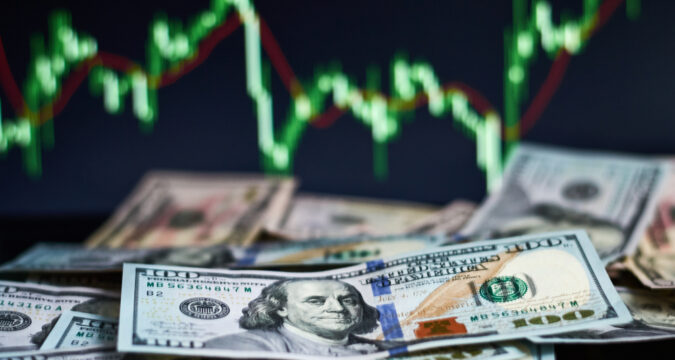
After a tumultuous start to the week, with bank fears rocking the markets, investors are now bracing for the release of the U.S. consumer price index (CPI) later today. The U.S. CPI is the world’s most widely watched economic indicator and a key measure of inflation. It’s a complete guide to consumer prices in the U.S.
Also, it is a significant factor in the Federal Reserve’s decision-making process.
U.S. Inflation Data And Turbulent Financial Markets
A market previously rocked by a banking crisis may face another potential blow as investors wait for the U.S. inflation report. This report could make the Federal Reserve’s monetary policy even more complex.
Tuesday’s report on February consumer prices has been expected for a few weeks, with its importance even increasing after the sudden breakdown of Silicon Valley Bank and Signature Bank. Experts have begun to predict a high chance that the central bank will reduce its interest rate hikes to assuage strain on the banking industry.
However, if data showcasing the continued high inflation rate emerge, it could cause more unpredictability regarding the Federal Reserve’s next decision. This could promote more extreme changes in the rate markets that have shaken investors recently.
Until recently, market volatility was mainly linked to inflation data based on the potential effect on the Federal Reserve’s rate-hike plans. During the past twelve months, the S&P 500 index had more significant fluctuations when the Consumer Price Index (CPI) was published, with an average move of 1.8% compared to the average daily activity of 1.2%.
As of Monday afternoon, investors were no longer anticipating a 50-basis-point increase at the Federal Reserve’s upcoming meeting. The likelihood of a 25-basis-point rise is around 75%. The probability of no hike is 25%, according to the CME Group’s FedWatch tool.
This shift in sentiment has had a significant impact on Treasury yields, with the two-year U.S. Treasury bond registering its steepest decrease since 2008 last Friday. According to a survey of economists by Reuters, the February Consumer Price Index would likely increase by 0.4% compared to the former month and 6% compared to the same period last year.
Federal Reserve Faces Complex Challenge
Walter Todd, chief investment officer at Greenwood Capital, stated that the high consumer price rate was already challenging for the markets. However, “the financial stability factor has been added to the picture, making it more complex for the Federal Reserve to handle.”
Analysts at the investment firm, Capital Economics, suggest that inflation expectations might expand if the Federal Reserve indicated they were less interested in suppressing inflation. They added that such a move could cause a decline in bonds, resulting in more problems for the banking sector.
Chuck Carlson, the CEO of Horizon Investment Services, remarked that issues in the banking industry were more likely to take precedence over the CPI figure’s effect on the market. Carlson commented that he does not believe the Consumer Price Index will have a significant effect, apart from a few exceptions.
Peter Tuz, the head of Chase Investment Counsel, estimated a 50-50 chance that the Federal Reserve would either raise the interest rate by 25 basis points or remain unchanged when next they meet.
He noted that the Consumer Price Index “could be immaterial with the current turmoil in the finance market.”




